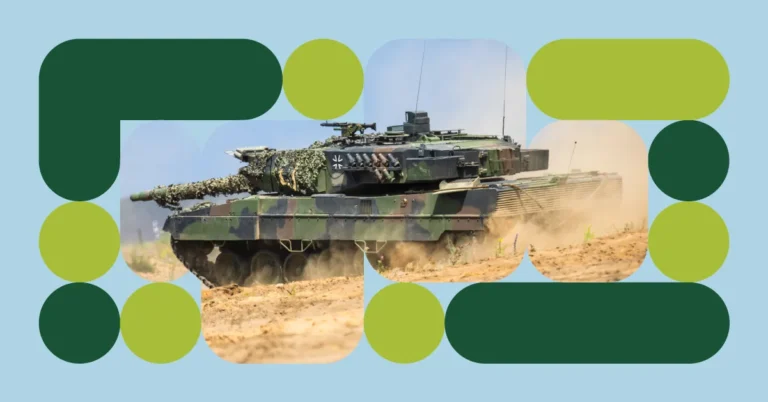The Lithuanian education system turns out an impressive number of engineers, helping to make the Baltic nation attractive to outside investment. Lithuania’s business environment has also helped it nurture robotics startups and international partnerships.
Kaunas University of Technology (KTU) is the center of Santaka Valley, one of five “research valleys” for Lithuanian education and research. It specializes in engineering and manufacturing, including robotics. Vilnius, the capital, is better known for financial technology.
KTU’s Electrical and Engineering department offers bachelor’s degrees in automation and control and in robotics. The university also has eight laboratories for research and development sponsored by multinationals including Siemens AG, Texas Instruments Inc., and Rockwell Automation Inc.
Seventy percent of KTU’s R&D is tied to business contracts, said Robertas Armonaitis, head of the cluster at the National Innovation and Entrepreneurship Centre at KTU. Areas of research include materials testing, 3D printing, lasers, and microelectromechanical systems.
These technologies are directly applicable to security, smart homes and smart cities, and the Internet of Things, Armonaitis told Robotics Business Review. One bachelor’s project involved a 3D-printed car.
Successful local startups include automation and electric vehicle maker Elinta Cos. and automated guided vehicle (AGV) supplier Rubedo Sistemos UAB.
European egg-handling experts
The Lithuanian education system has led to competitive success. This week, three graduate students from KTU won the final Team Design award in the European BEST Engineering Competition. The Board of European Students of Technology (BEST) runs the annual contest.
The competition required teams to design a system to convey and pack fragile goods, in this case an egg.
“This was a really challenging task,” said Dainius Stankevičius, a graduating student and employee at the Institute of Biomedical Engineering. “Only three teams out of 15 could pack at least one box, and only one of those boxes has survived a free-falling test saving the egg.”
The team also had to build a device to dig up a mine, move it, and destroy it. Adding to the challenge was a limit on resources, both in (virtual) price and in off-the-shelf components.
Among the robots in KTU’s labs are a YuMi collaborative robot from ABB AG and a humanoid Nao from SoftBank Robotics Corp. (formerly Aldebaran SA).
The university is developing six devices for osteopathic training and has also developed piezomechanical systems and real-time data analytics and controls.
One reason for the focus of Lithuanian education is that it was the biggest center for research in the Soviet Union, said Vytautas Ostaševičius, director of the Institute of Mechatronics at KTU. Since then, the country has received help in the form of structural support from the EU, as well as Horizon 2020 scientific funding.
Now, Lithuanians are working on projects such as the EU’s Framework 7 research into nanosurfaces and digital fingerprinting with partners in Ireland and France.
In other international partnerships, KTU last year signed a scientific agreement with Japan. It is also working with Polish researchers in materials science.
Lithuanian education and industry are still catching up, Ostaševičius acknowledged. But because the country a latecomer, it doesn’t have the legacy infrastructure, and its graduates are cutting-edge, he said.
Lithuanian education feeds affordable talent pool
Lithuania is No. 1 in the European Union for science, technology, and mathematics graduates per capita, according to Eurostat. Many students study abroad but return home with the knowledge of how things work, noted Egidijus Jurgelionis, public relations manager at Invest Lithuania.
An engineer in Lithuania earns about €900 ($1,012) per month, about one-fifth of salaries in the U.K., so they are an affordable alternative to talent elsewhere in Europe or North America, he said.
“Our country doesn’t have a lot of natural resources, but it does have talent,” Jurgelionis noted.
In addition, Lithuania has seven free economic zones, sites where startups can rent space at 0 percent tax for six years, and 7 percent for 10 years. The country has the fourth-lowest corporate tax rate in the EU, said Armonaitis.
Most foreign direct investment in Lithuania comes from Scandinavia and the U.K., followed by Germany and the U.S. “We’re increasing awareness,” Jurgelionis said.
Startup gives sight to mobile robots
Kaunas-based Rubedo Sistemos was founded in 2009 and has won international awards for its work on computer vision and mobile robotics. It started with medical R&D but has found new applications for its guidance technologies.
The main components are autonomy, adaptation, cognition, and sensors, said Linas Vaitulevičius, co-founder of Rubedo.
“We need to keep human-robot interaction in mind for acceptance,” he added.
Rubedo’s Unmanned Missioning Core (UMC) is a computing “jump-start” for customers that want to implement autonomous vehicles in their operations. UMC uses vision-based navigation and object recognition, and it can be paired with ground or aerial systems.
The low-power UMC can be integrated with and customized for mobile robots in the construction, logistics, military, and healthcare industries. UGVs using it are intended to be safe to operate autonomously around people.
Rubedo’s lightweight Computer Vision Module (CVM) is designed for use in autonomous vehicles, aerial mapping, and surveillance. The lightweight CVM has its own graphical processing unit, uses the open-source Robot Operating System, and supports industry-standard application programming interfaces.
The company said its 2D/3D sensors are more energy-efficient than lidar and are useful for tracking objects in real time. In addition to its fleet-management software and deep-learning capabilities, Rubedo offers professional and R&D services.
Rubedo is working with a U.K. partner and is talks with a French organization for unmanned aerial vehicles (UAVs).
“With our basic software stack and vision platform, we can provide the brain for legacy commercial fleets,” Vaitulevičius said.
In addition, Rubedo’s iGUIDE is a motion management system for precision targeting of tumors in image-guided radiation therapy (IGRT). It is compliant with U.S. Food and Drug Administration requirements.
Rubedo is working with Blue Ocean Robotics on testing and commercialization and is a co-founder of the new Lithuanian Robotics Association.
“We’re still optimizing performance, and we expect commercialization to start this year,” said Vaitulevičius. “Venture capital funding is coming, but we decided to stay local for now.”
Source: Robotics Business Review













